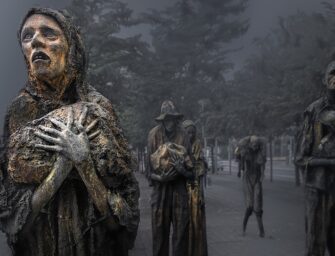Podcast: Play in new window | Download
Subscribe: RSS
Bolivia’s Intercultural Children’s Centre
By Jen Moore
With a longstanding interest in international cooperation, Eric Nadeau always imagined that he would work close to nature, somewhere in the countryside overseas.
Instead, this Quebec forester — who’s lived much of his adult life in Bolivia — has followed the journey of the people he works with to the urban fringe. Rather than planting trees, he is helping coordinate the Intercultural Children’s Centre on the outskirts of Sucre, Bolivia, where the children of rural migrants are rediscovering their roots.
Rural urban migration is a twentieth century phenomenon in Bolivia, and in the province of Chuquisaca — of which Sucre is the capital — 62 percent of the population is now urban (based on 2001 statistics). As farmers divide their property among children, generation after generation of land holdings have become fragmented. Add to this the challenges of small scale agriculture, which has seen little investment over the years, and many set out looking for opportunities in the city.
But when they arrive, scarce jobs and a hostile social environment confound the task of making ends meet. Parents and children often see little of each other, since they work long hours, says Eric. They most often find jobs in domestic labour, construction or washing clothes — parents and children alike. Simply put, life is difficult and youth are often vulnerable to social problems that will set them back further, such as alcoholism.
Further obstructing their full participation in city life, rural migrants face racism and discrimination and frequently feel ashamed of where they come from. Eric says many parents don’t want their children to speak quechua or guaraní, and they usually give up their customary dress and other traditions.
Through his work with the North-South Foundation, a Bolivian NGO, Eric has been helping to create a space where young people can build both skills and self-respect. The Intercultural Children’s Centre has served several hundred youth to date. Students live on the premises or come for workshops, where they learn practical skills such as computing, sewing, organic gardening, and baking.
With project funding from the Quebec Ministry of Foreign Affairs and the Canadian International Development Agency now exhausted, the Intercultural Children’s Center’s bakery has become its lifeline. For two years the school has managed to survive on minimal monthly student fees and six thousand rolls of bread baked fresh by students every Friday, and delivered to ten schools as part of a municipal breakfast program.
On a more personal level, this alternative education center works to reignite in young people a sense of appreciation for traditional Bolivian culture, through programs based on quechua and guaraní music and dance traditions.
Overall, their vision is to “help build a model of intercultural development where women and men are proud of their culture, respect the environment and value equality based upon human rights, and as active participants in the struggle against social exclusion.”
The ICC hopes to expand its reach. Its goal is to become recognized by the state as an alternative education program that will be publicly supported and ultimately replicated in other parts of the country. In Eric Nadeau’s words, they plan to “keep changing lives,” but by working with a couple of hundred instead of a few dozen students at a time.![]()






There are no comments
Add yours